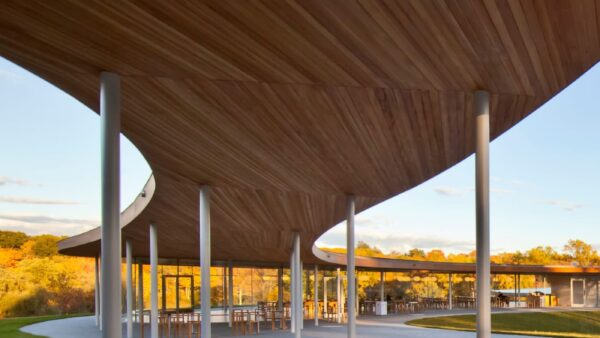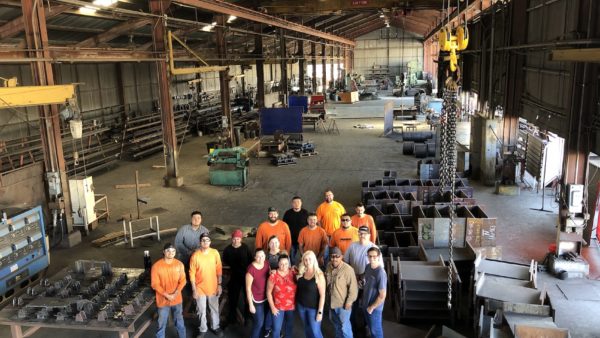Over the summer, the UK government appeared to lose its grip on the discourse concerning one of the country’s biggest challenges: helping the north of England catch up with London and the south east.
The northern cities – Manchester (pictured), Liverpool, Leeds, Newcastle, to name a few – may be household names around the world, but they are economically weak compared to London, neglected by the UK’s all-powerful political centre, and disconnected.
How disconnected are they? Here are some surprising facts:
- It is quicker to travel the 283 miles from London to Paris by train than it is to travel from Liverpool to Hull, a journey that is less than half the distance.Â
- Manchester and Sheffield are just 38 miles apart, but it takes over an hour and 20 minutes to drive from one place to the other, in which time you can get from Southampton to Oxford, twice the distance.Â
- Less than half a percent of commuters into Manchester come from Leeds, and vice versa, even though these two busy cities are just 40 miles apart.
In June, UK Chancellor George Osborne caught the mood with a speech in which he made a stirring case for a “Northern Powerhouse”. He called for an ambitious plan to make northern cities radically more connected, from east to west. A necessary precondition, he said, was the devolution of power to the cities, complete with elected mayors of the sort London has.Â
Central to the transport plan was the government’s cherished high-speed rail link, High Speed 2 (HS2).
HS2 has been costed at £43bn ($70bn) by the government and £80bn ($130.4bn) by the Institute for Economic Affairs, a free-market think tank. When complete in the early 2030s, 400km/h trains will cut journey times from London to Manchester in the north west and Leeds in the north east.
It may have been a mistake, Osborne mentioning HS2, because the impression has grown that the government has not really thought through how HS2 will help the north. Critics argue that bringing Manchester, say, to within an hour of London will only speed up the flight of talent and investment from the weaker region to the stronger. Even though the complete network makes a kind of ‘Y’ shape, it is still, predominantly, a north-south connection.
The credibility gap widened in July with the publication of a report by the Cities Growth Commission, which argued that England’s north would stay weak and disconnected without comprehensive, multi-modal, east-west linkages.Â
The chair of the commission is the macroeconomist Jim O’Neill. In 2001 he coined the acronym “BRIC” to group the (then) rising economies of Brazil, Russia, India and China. O’Neill talked about the “agglomeration effects” that effective infrastructure create: increasing the density of economic activity, creating positive multiplier effects and boosting the value of other types of investment.
Our great northern cities individually are quite small on the global stage, but combined they rival in size London or New York or Tokyo– George Osborne, UK Chancellor of the Exchequer
He has likened what is needed to a “Tube system for the North”, and the only way to achieve that, he said, was for the northern cities to begin thinking of themselves as a system of cities, and for them to have the authority and the fund-raising powers to make it a reality. They should be able to plan amongst themselves, borrow the money needed to fund ambitious schemes, carry the risk, and reap the rewards.
People use the phrase “Westminster bubble” to describe the stultifying centralisation of power in London. A senior civil servant told me that “Westminster football” would be more apt because the rind surrounding Whitehall is so devilishly impervious. With funding doled out by central government to supplicants deemed most deserving, the dominant mode is competition among northern cities, not collaboration. Under such conditions – divide and rule – effective, region-wide linkages are impossible, the City Growth Commission concluded.
That was July. Then, as if on cue, in August, the leaders of five northern cities, Newcastle, Leeds, Liverpool, Manchester and Sheffield, launched their vision of what radical east-east connectivity might look like. They proclaimed devotion to HS2, but sought to bend the scheme to their vision by bringing forward the high-speed link between Leeds and Sheffield, and by detailing how HS2 could integrate into a much enhanced inter-city road and rail network. The cost they estimated for putting an effective “top” on to HS2 was a relatively modest £15bn.
Both visions went far beyond the largely north-south connectivity HS2 will create but, when the city leaders presented their thinking to the chancellor, George Osborne, he thanked them but asked them to wait, because Sir David Higgins, chair of HS2 Ltd, was working on a plan and would report in October – in other words, ‘we’ll let you know’.
But he did acknowledge that many people are now thinking differently about the northern cities and what they could become. He offered an arresting international comparison: “Our great northern cities individually are quite small on the global stage,” he said, “but combined they rival in size London or New York or Tokyo.”
Clearly, the machinery of central control cannot be dismantled overnight. But a knife-edge UK general election is now just eight months away, on 7 May 2015. Equally, the Scottish referendum has catapulted the issue of devolution clean over Westminster’s walls, and politicians will be under immense pressure to give the regions a far greater say in their built future.
Writing the day after the narrow Scottish vote to stay in the Union, Cities Growth Commissioner Ben Lucas called for ‘Devo Met‘, a substantial devolution of economic power to England’s metro regions. He pointed out that the four city regions spanning the Pennines – Manchester, Liverpool, Leeds and Sheffield – have a combined population of nearly seven million people, not that much smaller than London.
Calling it a once-in-a-century opportunity, he warned that “now is not a moment for tinkering or platitudes, only Devo Met on a significant scale can redress the economic imbalance that still threatens the Union.”
A new political settlement concerning what Britain builds, and where, looks to be very much on the cards.
Photograph: Manchester skyline, 2011 (Rtype909/Wikimedia Commons)










